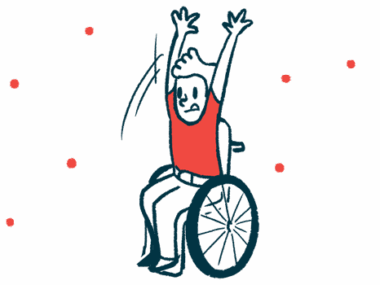Embracing the unsung heroes of the SMA community
In praise of the specialists who've made a difference as part of my medical team
Written by |

On a recent episode of my favorite podcast, “Beautiful Stories From Anonymous People,” host Chris Gethard spoke with an occupational therapist (OT). When this caller discussed her profession, she asked Gethard if he had any experience with her field as a patient. Admittedly, he knew little about it and had never used OT services. That led to an enlightening conversation in which the therapist described her work life and its impact on people.
For people outside the disability and rare disease spectrum, it’s not uncommon to have limited knowledge of medical professions, as Gethard did. Most people don’t have enough people on their healthcare team to form a small bowling league, but that’s common for those of us living with SMA. I’ve been seeing an occupational therapist for more than a decade, along with multiple other specialists at clinic appointments.
Twice a year, I go to my neuromuscular clinic to see my SMA specialists. The team includes a neurologist, nutritionist, occupational therapist, physical therapist, pulmonologist, and social worker. My pee doctor (urologist) gets the distinguished honor of a separate visit every November.
All of these professionals work together to address SMA-specific issues and provide me with the best care possible. Occupational therapists help me find assistive technologies and tools for daily living. They also conduct my Spinraza (nusinersen) evaluations and talk with me about my treatment goals.
Lauding my specialists
Occupational and physical therapists (PTs) then collaborate to find resources for their patients. My longtime PT is the one who recommended and helped me acquire my JACO robotic arm. Since then, she and my OT have directed other patients to this device.
Since recently receiving my diagnosis of type 2 diabetes, I’ve consulted with my nutritionist about developing a dietary plan that meets my needs. That’s been a crucial component of managing this disease, and I’m pleased to say that my blood sugar levels and overall health are significantly improving. My desire for fatty and sugary foods has decreased, and I’m experiencing much higher energy levels than I did just a few months ago.
As for the dynamic duo of neurology and pulmonology, I believe these are essential healthcare services for SMA patients. I’ve been doing pulmonary function tests for so long that I barely remember a time without them. As someone who’s dealt with a lifetime of respiratory issues, I wouldn’t be where I am today without my pulmonary team. I also started seeing a neurologist well before the advent of SMA treatments. Listen to this interview with my previous neurologist for a sense of what his role was before and after I started Spinraza.
Living with SMA means depending on a multitude of healthcare specialists and caregivers to keep going. True, plenty of bad doctors are out there, and I’ve experienced my share of medical gaslighting. Yet I’m forever grateful for those in my life who go above and beyond to make me feel seen and heard and enhance my quality of life. These are the unsung heroes in the SMA community, and they deserve all the praise.
Note: SMA News Today is strictly a news and information website about the disease. It does not provide medical advice, diagnosis, or treatment. This content is not intended to be a substitute for professional medical advice, diagnosis, or treatment. Always seek the advice of your physician or other qualified health provider with any questions you may have regarding a medical condition. Never disregard professional medical advice or delay in seeking it because of something you have read on this website. The opinions expressed in this column are not those of SMA News Today or its parent company, Bionews, and are intended to spark discussion about issues pertaining to spinal muscular atrophy.





Leave a comment
Fill in the required fields to post. Your email address will not be published.